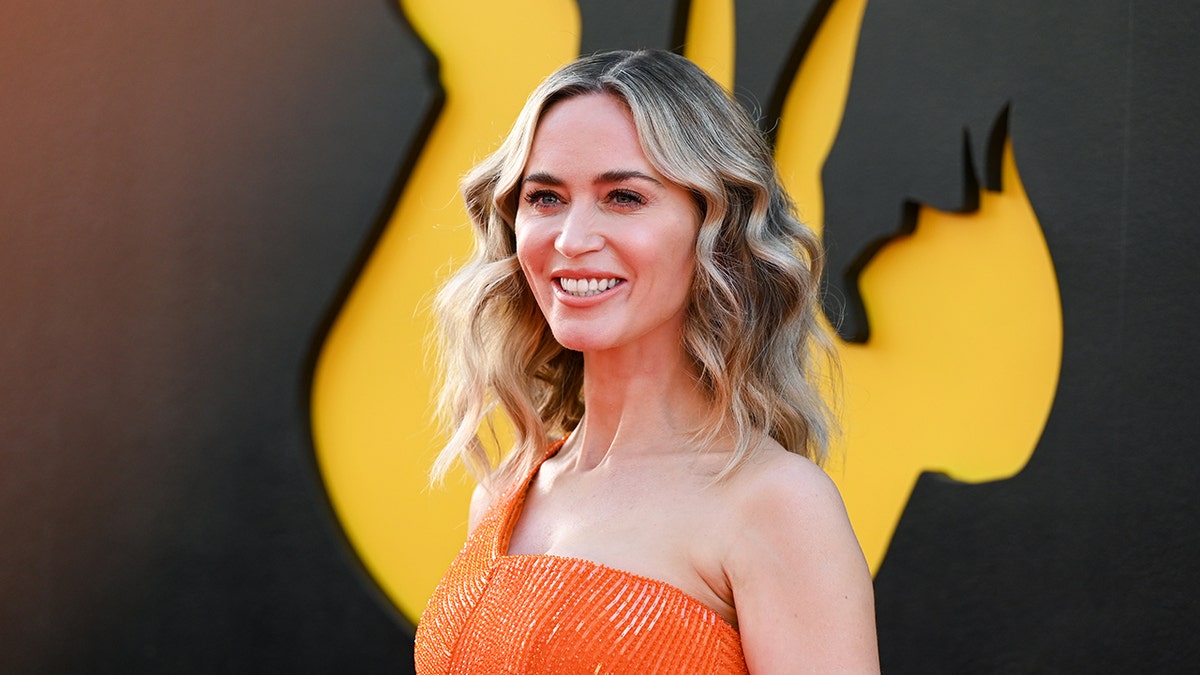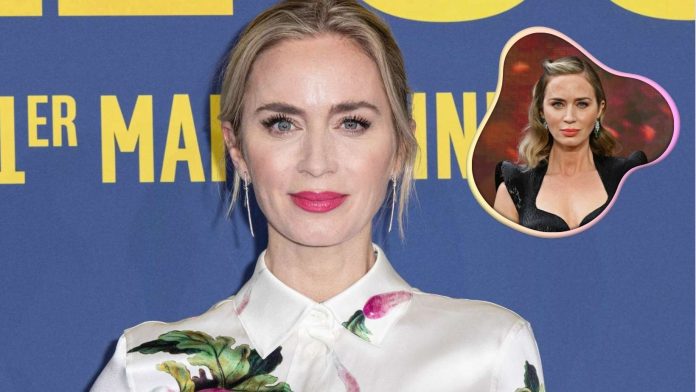- Emily Blunt has revealed that kissing some of her co-stars made her feel nauseated, indicating that not all on-screen chemistry is enjoyable for her.
- She has discussed strategies for finding chemistry with co-stars, such as finding something to appreciate about them or their characters.
- Blunt acknowledges the difficulty of creating on-screen chemistry when there isn’t a natural rapport between actors, highlighting the challenges of filmmaking.
Newsypeople- Emily Blunt, a renowned British actress known for her roles in films such as “The Adjustment Bureau,” “Edge of Tomorrow,” “Jungle Cruise,” “The Fall Guy,” and “Oppenheimer,” has candidly shared her experiences on set, particularly regarding the challenges of creating chemistry with certain co-stars.
In an interview on “The Howard Stern Show,” Blunt revealed that while she has kissed many of the world’s most desired film stars, some of these experiences were less than enjoyable, to the point where she felt nauseated. This admission came in response to a question about whether she had ever wanted to throw up after kissing an actor, to which she replied, “Absolutely, absolutely…I wouldn’t say it’s extreme loathing, but I’ve definitely not enjoyed some of it”.

Blunt also discussed her strategies for finding chemistry with co-stars when there isn’t much, such as trying to find something she likes about her fellow actor to create a better rapport on camera. She mentioned looking for aspects like a nice laugh or how they speak to people, emphasizing the importance of finding something to appreciate about the person or character to lean into during filming.
Also Read: Is Max Domi Related To Tie Domi? Relationship And Family
Emily Blunt Reveals Nausea From Kissing Certain Co-Stars On Set
Emily Blunt, an Oscar-nominated actress known for her roles in films such as “The Devil Wears Prada” and “The Young Victoria,” has candidly discussed the challenges she faced during intimate scenes in her career. Speaking on “The Howard Stern Show,” Blunt revealed that she has experienced nausea from kissing certain co-stars on set, a sentiment she described as not being “sort of extreme loathing, but I’ve definitely not enjoyed some of it”.
Blunt’s comments were met with support from fans and industry insiders, who shared her feelings of discomfort and the lengths actors go to create believable chemistry on screen. She mentioned that she has developed techniques for kissing co-stars to whom she is not attracted, focusing on finding something to appreciate about them, whether it’s their sense of humor, the way they interact with others, or even something as simple as their politeness. This approach, she said, helps her create a believable “chemistry” on screen.
Emily Blunt behind the scenes of #TheFallGuy pic.twitter.com/MnfjIR0e8J
— best of emily blunt (@badpostblunt) May 7, 2024
Blunt also discussed the concept of chemistry in acting, explaining that it’s an ethereal quality that can’t be forced. She noted that while she can manufacture chemistry to some extent, it’s easier when there’s a natural rapport with a co-star. She praised her working relationships with actors like Dwayne Johnson, Robert Downey Jr., Tom Cruise, Matt Damon, and Cillian Murphy, highlighting their camaraderie and friendship off-screen.
Her connection with Ryan Gosling, her co-star in “The Fall Guy,” was particularly noted for being genuine. Blunt expressed her admiration for Gosling’s wife, Eva, and their children, emphasizing the importance of personal relationships in her professional life. She mentioned taking a year off from acting to focus on her children, indicating her commitment to balancing her career with her personal life.
Blunt’s candidness about her experiences on set underscores the challenges actors face in creating authentic on-screen chemistry, especially in intimate scenes. Her approach to overcoming these challenges, by finding aspects to appreciate about her co-stars and focusing on creating a believable connection, offers insight into the nuanced work that goes into film acting.
Emily Blunt Career Achievement Explored
Emily Blunt’s career achievements span across film, television, and stage, showcasing her versatility and talent in portraying a wide range of characters. Born on February 23, 1983, in London, England, Blunt has become a British-American actress known for her crisply delineated characterizations of women from all walks of life.
Blunt began her career in the 2002 Chichester Festival, where she played Juliet in a production of Romeo and Juliet. Her London stage debut was in a production of The Royal Family, opposite Dame Judi Dench. This early exposure to theater laid a solid foundation for her acting career.
Her breakthrough came in 2006 with her starring roles in the television film “Gideon’s Daughter” and the comedy-drama film “The Devil Wears Prada.” The latter won her a Golden Globe Award for Best Supporting Actress, marking the beginning of her rise to stardom.

Blunt’s profile continued to grow with leading roles in a variety of films, including the period film “The Young Victoria” (2009), the romantic comedy “Salmon Fishing in the Yemen” (2011), and the science fiction films “The Adjustment Bureau” (2011), “Looper” (2012), and “Edge of Tomorrow” (2014). She also starred in the fantasy adventure “Jungle Cruise” (2021) and the biographical thriller film “Oppenheimer” (2023), for which she received a nomination for the Academy Award for Best Supporting Actress.
Blunt has received multiple accolades for her work, including a Golden Globe Award, a Screen Actors Guild Award, and nominations for an Academy Award and four British Academy Film Awards. Forbes ranked her as one of the highest-paid actresses in the world in 2020, highlighting her commercial success alongside her critical acclaim.
Blunt’s career achievements reflect her ability to navigate both art and commerce, maintaining a rare and enviably profitable career balance. Her portrayal of Katherine Oppenheimer in “Oppenheimer” and her return to action-comedy in “The Fall Guy” opposite Ryan Gosling showcase her versatility and appeal to both audiences and critics.



